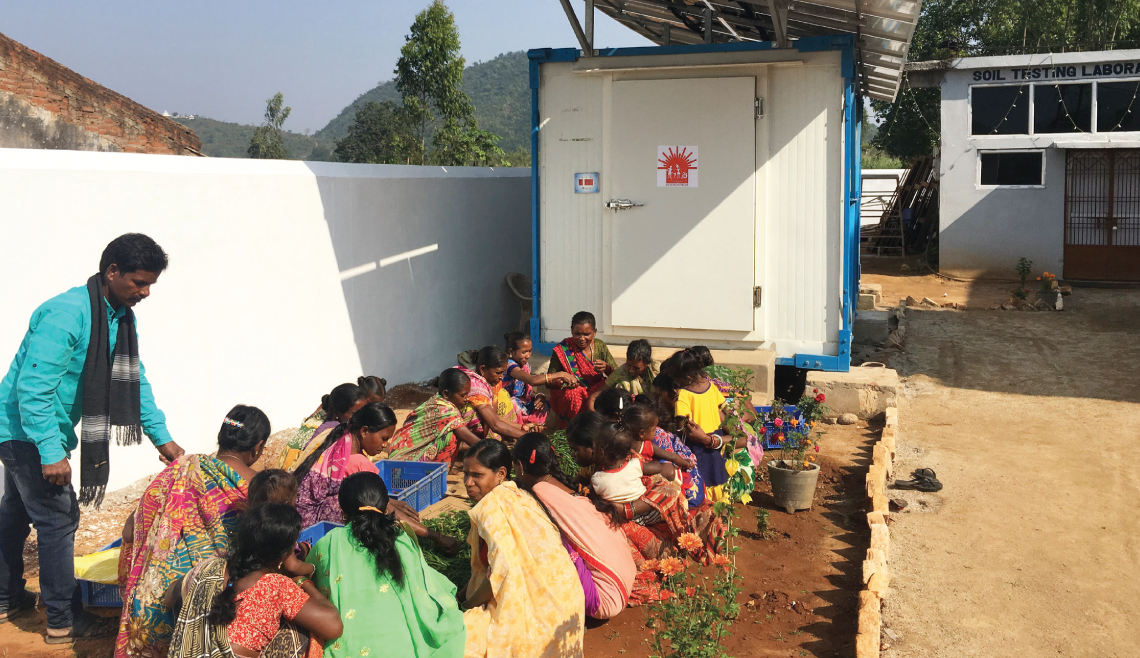Cold-storage solution
Keeping it cool is of the essence for farmers engaged in horticulture, floriculture and dairy. The ability to do this effectively is a determinant in how successful their businesses become. That’s the space ICC is working in through its backing for cold-storage solutions based on decentralised renewable energy (DRE).
ICC has funded the SELCO Foundation, a Bengaluru-based nonprofit, in piloting three community-led DRE cold storage pilot projects in Odisha. An increase in farmer incomes and a decline in post-harvest losses are the expected outcomes. Beyond that, DRE-based cold storages enhance farmer resilience while cutting the emission load of conventional centralised systems.
Spreading this solution is far from easy, though. Farmer access to cleaner cooling is inadequate due to high upfront costs, access to financing is difficult and then there’s the market linkage factor to contend with. ICC is attempting to get around these barriers by directing philanthropic funding to support a transformation of the market for DRE-based cold storages.
That would mean strengthening the operating ecosystem by targeting levers related to finance, policy and market linkages. ICC’s cluster-based ecosystem approach will be piloted soon in select agricultural regions and it will explore how small-holder farmers can access affordable cooling solutions.
There are multiple entities that come into the picture in the farm-to-fork value chain and rarely, if ever, do they interact with one another. “They don’t have the time or the luxury to collaborate and coordinate — that’s where we come in,” says Ms Monteiro, programme lead at ICC. “We look at what’s missing in the conversation.”
That may mean talking to NABARD (National Bank for Agriculture and Rural Development), state agriculture departments and the technology providers, adds Ms Monteiro. “The idea is to understand which type of solution is needed, in which village for which crop. It’s typical of how we facilitate collaboration.”
